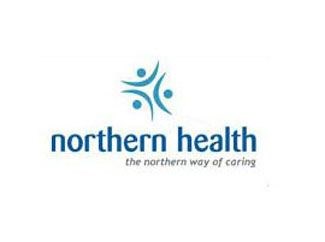Eating healthy at any age can be as simple as following Canada's Food Guide.
Because seniors may have some health issues that need special attention, what's put into the body can be quite essential to attaining and maintaining good health.
"Healthy eating is really important for everyone," said Marianne Bloudoff, registered dietitian with Northern Health's population health team. "It not only gives you energy to go about your day but it keeps your mind sharp and can help to slow the aging process. It also lowers your risk for heart disease, high blood pressure and some cancers and help you manage chronic diseases that you might already have like diabetes."
For many seniors, their cooking needs have changed so instead of cooking for a big family, they may now be cooking just for themselves or themselves and a partner and that requires some transition.
"So many seniors are looking for ways of feeding themselves in a healthy way but trying to save money and not cooking in big batches because they don't want to have waste or leftovers," said Bloudoff. "So it's great to look for recipes that can be scaled down or things that you can cook in a larger batch and freeze in smaller portions, which is also great for days when you don't want to do any cooking.
"It's OK not to cook a proper meal every time," said Bloudoff. A sandwich using whole grain bread and tuna with a side of vegetables with a glass of milk is perfectly fine, she added.
"That way you can have a balanced meal but it's not a lot of effort," said Bloudoff.
It's important to eat food from all four groups in the Canada Food Guide, including vegetables and fruit, whole grains, milk and alternatives and meat and alternatives.
"It's really important to focus on having protein with each meal," said Bloudoff. "It can be one of the more expensive items and if you're on a limited income it can be more difficult but look for more economical options like eggs, beans, canned tuna or salmon, which are all great options."
Bone health is an issue with seniors.
Preventing osteoporosis is key along with preventing falls and breaking bones. It's important to get enough nutrients that will help prevent that so seniors need to eat foods rich in calcium and Vitamin D like lower fat dairy and canned salmon.
"We do recommend that adults over 50 years old take a Vitamin D supplement of 400 International Units a day," said Bloudoff. "We have higher needs of Vitamin D as we get older for bone health and it can be difficult to get Vitamin D from our food supply because there are very few naturally occurring sources and living in the north we don't have enough sunlight to make our own Vitamin D for a large part of the year."
It's important to limit the amount of packaged and processed food a person consumes, said Bloudoff. The issue with the packaged and processed food is a lot of it is very high in sodium and that can be a problem for people who might already have a chronic disease like heart disease or high blood pressure. Consuming those products can also lead to those chronic diseases as well, she added.
"Limiting our sodium intake is great for heart disease or kidney disease," said Bloudoff. There are now many food options offering no salt added varieties of canned vegetables, beans, lower sodium breads and sauces and soup, added Bloudoff.
"Or just make things from scratch so you are in control of the salt content," said Bloudoff.
For more information on healthy eating, call HealthLinkBC at 811 and request a booklet called Healthy Eating For Seniors. Or to speak to a registered dietitian call 811 as well.



